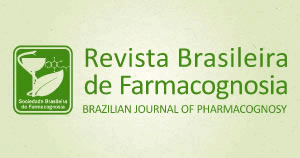Abstract
Chagas' disease is a parasitic infection caused by protozoan Trypanosoma cruzi that affect millions of people worldwide. The available drugs for treatment of this infection cause serious side effects and have variable efficacy, especially in the chronic phase of the disease. In this context, natural compounds have shown great potential for the discovery of new chemotherapies for the treatment of this infection and various other diseases. In present study, we evaluated the in vitro antiprotozoal activity of five species of Brazilian and Spanish marine sponges (Condrosia reniformes, Tethya rubra, Tethya ignis, Mycale angulosa and Dysidea avara) against T. cruzi. By GC–MS data, we observed that in these extracts were present the major classes of the following compounds: hydrocarbons, terpenes, steroids and alcohols. The extracts showed activity against the three forms of this parasite and did not induce toxicity in mammalian cells. Better activities were observed with the extracts of marine sponges, C. reniformes (EC50 = 0.6 μg/ml), D. avara (EC50 = 1.1 μg/ml) and M. angulosa (EC50 = 3.8 μg/ml), against trypomastigote forms. In intracellular amastigote forms, the extract of T. ignis showed IC50 of 7.2 μg/ml and SI of 24.65. On this basis, our results indicate that these extracts can be promising chemotherapeutic agents against T. cruzi.
Keywords
Chagas’ disease; Trypanosoma cruzi; Natural products; Marine sponges

